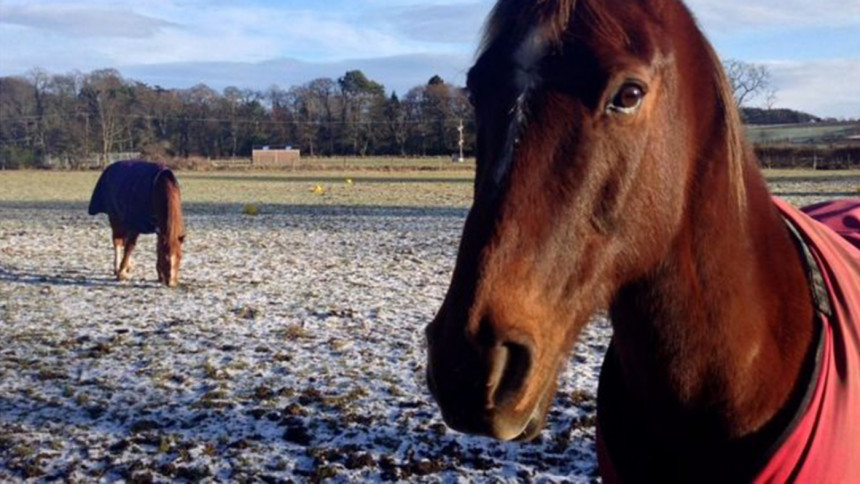Horses recognise human emotions

Horses are able to discriminate between happy and angry human facial expressions, according to research.
In an experiment using photographs of male human faces, scientists from the University of Sussex showed that domestic horses "responded negatively" to angry expressions.
The scientists say domestication may have enabled horses to adapt to and interpret human behaviour.
The findings are published in the journal Biology Letters.
The team carried out their tests at riding stables - presenting large photographs to a total of 28 horses.
"One person presents the photo while another holds the horse," explained researcher Amy Smith.
"The main result," she explained, "was that they looked [at angry faces] with their left eye."
Mammal brains are wired such that input from the left eye is processed by the right side of the brain.
"The right hemisphere is specialised for processing negative stimuli," explained Smith. "It's really about the partition of energy - not using the whole brain."
The researchers also fitted the horses with heart monitors, which revealed that angry faces caused their heart rates to rise significantly.
Similar results have been reported recently in domestic dogs, raising questions about how living with humans might have influenced animals' abilities.
While horses might have an innate ability to recognise emotions in each other, their domestication by humans could have caused them to adapt that ability to humans.
"It also shows this extra ability of horses," said Smith. "[It shows that] our behaviour around them has an impact."


 For all latest news, follow The Daily Star's Google News channel.
For all latest news, follow The Daily Star's Google News channel. 








Comments